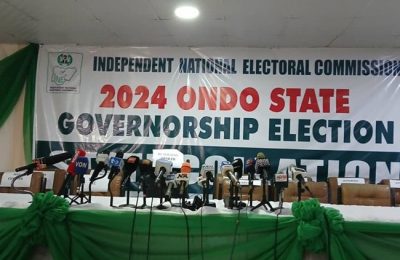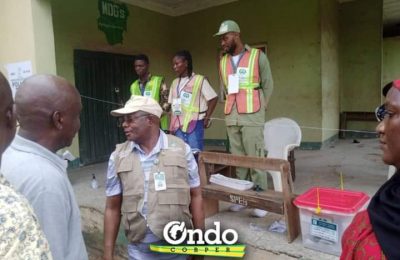Since the launch of the Electronic Call-Up system at the ports by the Nigerian Ports Authority (NPA), sanity has returned to major ports access roads. However, activities of petroleum tankers between Coconut and Mile 2 axis of the Apapa-Oshodi port access road seems to defy regulation, writes TOLA ADENUBI.
Prior to January 2021, the roads leading to the nation’s busiest ports of Apapa and Tin-Can were riddled with too many articulated vehicles seeking to either enter the ports to lift cargoes or exit the ports with already lifted cargoes. The convergence of too many articulated vehicles looking for containerised cargoes or liquid cargoes led to confusion on the ports access roads, and ultimately grounded vehicular movement in and out of the ports.
The launch of the Electronic Call-Up system by the Nigerian Ports Authority (NPA) in January 2021 saw the eradication of traffic gridlock along the nation ports access roads.

The Electronic Call-Up system also referred to as Eto is a system where movement of trucks in and out of the ports is controlled electronically with the aid of computerised system from a controlling centre.
With this system, the days when truckers besiege the ports access roads looking for cargoes even when such trucks have no business being around the ports became history.
However, checks by the Nigerian Tribune has revealed that more than two years after the novel introduction of Eto at the ports, petroleum tankers have refused to be integrated into the electronic call-up system, a situation that is threatening the successes recorded by the NPA’s Electronic Call-Up system.

Menace of petroleum tankers
With many Tank Farms located around the Tin-Can-Coconut stretch of the ports in Lagos, the activities of some of the petroleum tankers is threatening plans by the NPA to continue to enforce sanity on the ports access roads.
Checks by the Nigerian Tribune revealed that many petroleum tankers deliberately clog the ports access roads, from Coconut to Mile 2, in search of liquid cargoes even when they have no business being around the port’s premises at such time.
Speaking with the Nigerian Tribune, a staff at one of the petroleum Tank Farms in Coconut area explained that many petroleum tankers park on the highway leading to the ports because of a lack of a dedicated holding bay for them.
According to the Tank Farm staff who wouldn’t want his name in print, “Most of the petroleum tankers that you see lined along the Apapa-Oshodi express way from Coconut to Kirikiri and down to Mile 2 are actually waiting for their turn to pick cargoes.
“At times, they spend weeks or months on the queue, crippling traffic situation around the Mile 2 axis leading to the ports. Ordinarily, some of them shouldn’t be on the road until it’s their turn to get loaded from the Tank Farms.
“Their presence on the highway reduces the lanes available to other road users, crippling vehicular movement along these routes leading to the ports. This is an avoidable situation if many of the Petroleum Tanker owners have dedicated yards or spaces near the ports. But because their garages or yards are far off from the ports, they tend to want to move closer to the port by parking along the Apapa-Oshodi highway.
“An entire lane of the Apapa-Oshodi express way has virtually been turned into a parking lot by this petroleum tankers and this shouldn’t be so.”
When Nigerian Tribune passed through the Kirikiri axis of the Apapa-Oshodi express way leading to Tin-Can port, the lane leading inwards the port was filled with petroleum tankers while road users were forced to use the other lane, outward the port.
Delayed Eto integration
During its first-year anniversary in 2022, the Managing Director of the Trucks Transit Parks (TTP), the firm handling electronic call-up on-behalf of the NPA. Mr. Jama Onwubuariri explained that efforts were in top gear to integrate the petroleum tankers into the Eto call-up system at the ports.
“We are discussing with the petroleum tanker drivers’ associations. We are discussing with the Nigeria Union of Petroleum and Natural Gas Workers (NUPENG) and the Petroleum and Natural Gas Senior Staff Association of Nigeria (PENGASSAN) to see how their members can come onboard the Eto app.
“It’s important that the petroleum tankers are integrated into the E-Call-Up system since they are always coming to the port to get petroleum products from the Tank Farms. We will continue pushing for that and will update the media as soon as that is done,” the TTP Managing Director had responded to enquiries during the first anniversary of the Eto system.
However, investigation by the Nigerian Tribune has revealed that the delayed integration of the petroleum tanker operators into the NPA Eto system is driven by the refusal of the petroleum tanker operators to pay charges for the electronic Call-Up services.
Checks by the Nigerian Tribune revealed that the Electronic Call-Up system charges N30,000 for export cargoes, N25,000 for Flat-Bed and N25,000 for Empties.
As tanker driver, Ismaila Ahmed, explained that the aspect of payment of charges has delayed the integration of petroleum tankers into the NPA Eto system.
“They (TTP) asked us to come and join their Eto app. We have no issues with that as long as we won’t pay a dime. Petroleum tankers are very important to the economy of this country. We carry cargoes that determine the fate of this country. We pay all manners of charges at the Tank Farms. That should be enough. Incurring additional charges all in the name of being integrated into an electronic platform, doesn’t sound good to us.
“If we must be integrated into Eto, it has to be at no cost,” Ahmed said.
Way forward
The restoration of sanity along the ports access roads due to the NPA’s electronic call-up system initiative has received widespread commendation thus far. For this to continue, the petroleum tankers must be integrated into the Eto system of the NPA. The issue of the petroleum tankers is causing a lot of pain along the Apapa-Oshodi end of the Lagos ports access roads.
For residents of Festac, Amuwo-Odofin, Ikotun and others who work in Apapa, the menace of petroleum tankers along the major express road, the Apapa-Oshodi expressway, has remained a problem that needs quick resolution.







